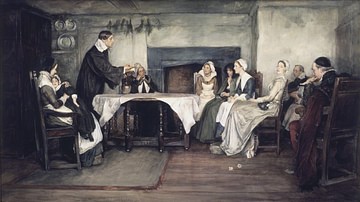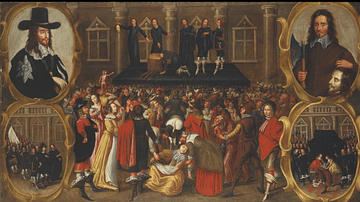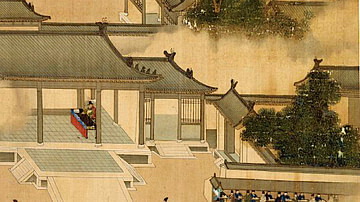Search
Remove Ads
Advertisement
Summary 
Loading AI-generated summary based on World History Encyclopedia articles ...
Search Results

Definition
English Civil Wars
The English Civil Wars (1642-1651) witnessed a bitter conflict between Royalists ('Cavaliers') and Parliamentarians ('Roundheads'). The Royalists supported first King Charles I of England (r. 1625-1649) and then his son Charles II, while...

Article
Ellen and William Craft's Running a Thousand Miles for Freedom
Ellen and William Craft's Running a Thousand Miles for Freedom (1860) tells the story of the couple's escape from slavery, with Ellen disguised as a young, White gentleman of means and William as her slave. They successfully traveled to the...

Article
From Slavery to Freedom: Epictetus' Path
The Stoic philosopher Epictetus (l.c. 50- 130 CE) following the example of Socrates, wrote none of his teachings down, preferring to impart his wisdom to his students through class discussions. His student Arrian collected and edited the...

Article
The Propaganda of Octavian and Mark Antony's Civil War
Propaganda played an important role in Octavian (l. 63 BCE - 14 CE) and Mark Antony's (l. 83 – 30 BCE) civil war, and once victorious at the Battle of Actium (31 BCE), Octavian returned home to become the first Roman emperor. The decade preceding...

Article
Winthrop & Williams: Religious Persecution & Freedom in New England
The Puritans who settled New England claimed they came to the New World for religious freedom but, once settled, made it clear that this freedom was for themselves only and dissent would not be tolerated. Although the most famous example...

Definition
Civil Constitution of the Clergy
The Civil Constitution of the Clergy was a law passed in July 1790 during the French Revolution (1789-1799), which caused the immediate subordination of the Catholic Church in France to the French government. An attempt to modernize the Church...

Article
Causes of the English Civil Wars
The English Civil Wars (1642-1651) were caused by a monumental clash of ideas between King Charles I of England (r. 1625-1649) and his parliament. Arguments over the powers of the monarchy, finances, questions of religious practices and toleration...

Article
Consequences of the English Civil Wars
The impact and consequences of the English Civil Wars (1642-1651) were many and far-reaching. Charles I of England (r. 1625-1649) was executed, and the monarchy was abolished. Oliver Cromwell (1599-1658) then headed the Republic as the Lord...

Article
Cavalry in the English Civil Wars
Cavalry regiments were an essential component of both Royalist and Parliamentarian field armies during the English Civil Wars (1642-1651). Armed with a sword, carbine, and a brace of pistols, cavalry riders evolved to become fast, lightly-armoured...

Article
The Civil Service Examinations of Imperial China
The civil service examinations of Imperial China allowed the state to find the best candidates to staff the vast bureaucracy that governed China from the Han Dynasty onwards (206 BCE - 220 CE). The exams were a means for a young male of any...